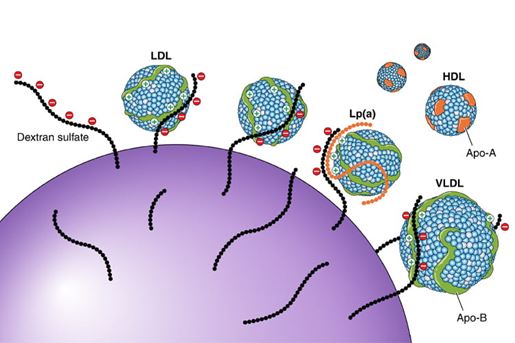Lipoprotein Apheresis: Utility, Outcomes, and Implementation in Clinical Practice
Published: October 07, 2024

- Lipoprotein apheresis (LA) is a Food and Drug Administration (FDA) approved adjunctive therapeutic option for treating refractory high levels of low-density lipoprotein cholesterol (LDL-C) and lipoprotein (a), in children and adults with clinical heterozygous and homozygous familial hypercholesterolemia who meet the criteria.
- Treatment with LA may acutely lower LDL-C concentration by 75-85%.
- Prospective and retrospective observational data suggest that LA may lower major adverse cardiovascular events by 75-95%. Randomized controlled trials or larger prospective studies are warranted to further substantiate cardiovascular benefits.
Recommended Reading
- 2018 Guideline on the Management of Blood Cholesterol
- 2019 ACC/AHA Guideline on the Primary Prevention of Cardiovascular Disease
- Dietary Cholesterol and Cardiovascular Risk
- Statin Safety and Associated Adverse Events
- Lipoprotein(a): A Genetically Determined, Causal, and Prevalent Risk Factor for Atherosclerotic Cardiovascular Disease
- Aggressive LDL-C Lowering and the Brain: Impact on Risk for Dementia and Hemorrhagic Stroke